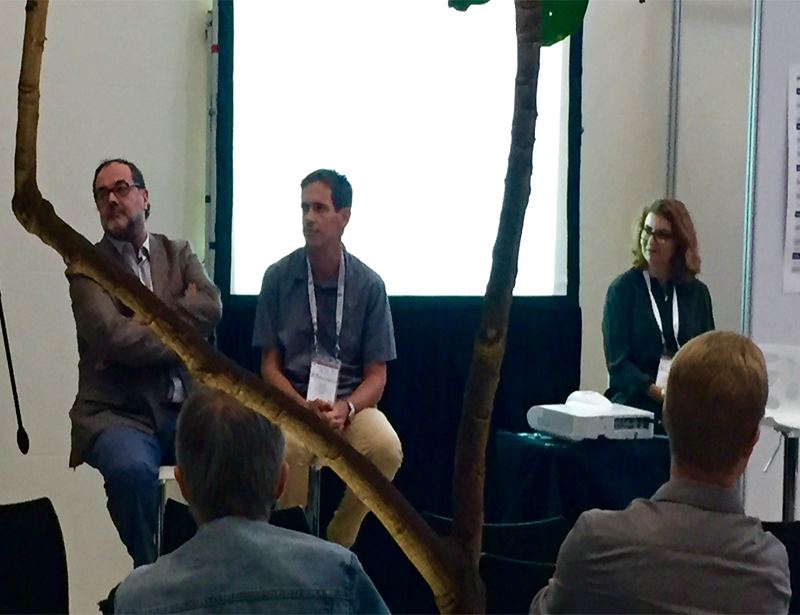The American Geophysical Union (AGU) and the International Geological Congress (IGC) are hosting a series of daily panel discussions during the IGC in Cape Town, South Africa, this week. These are centered around “hot topics” associated with the sessions and include issues related to the science and translation of the science to societal issues such as water and energy resources.
The first discussion on Monday focused on Elevating Planetary Science in Africa and was followed by a dinner discussion on this topic among a larger group of stakeholders, including leaders from the Geological Society of Africa, Young Earth Science (YES) network in Africa, and other planetary, meteoritic, and Earth scientists from Africa and from Europe with research programs in Africa. We explored several ideas and needs to expand planetary science research and education. A brief summary is below, and the participants are working on a larger statement.
Although planetary sciences may be perceived as long-term fundamental research with little direct and immediate benefit for populations, expanding planetary science programs can have many benefits, such as:
- Training in planetary science, which includes math, physics, engineering, and remote sensing applications, is relevant in many applications.
- Expertise in remote sensing studies could benefit by taking part in international collaborations.
- Such research can also help inspire and educate the public in science generally and help provide a broader perspective of planetary issues.
Some of the issues and needs we discussed (where further input and thoughts are welcome) include:
- Develop a collaboration, mentorship, and communication network throughout Africa.
- This, and other efforts, such as supported lectures, workshops, and conferences can help develop the education and scientific capital needed over the long term.
- Develop efforts to engage the public in the science; it is important that the African communities and public own the science, inspire students, and help show the relevance of the science.
- Broaden awareness of open data provided by the international planetary science community and the ease and advantages of working with it.
- Related, expanding open data efforts worldwide to facilitate science in African countries and elsewhere.
- Expand awareness of emerging instrumental centers that are in many cases supported by and connected to industry.
- Develop initiatives like the Africa Array, work with other initiatives like the square kilometer array that promote long-term and potentially interdisciplinary science, and partner with countries in Africa that have recently started space programs or have established meteoritics and planetary science efforts.
These and other ideas will be explored further in the coming weeks. We value your ideas and input.
—David Baratoux, Editor, Journal of Geophysical Research: Planets and Brooks Hanson, Director, AGU Publications; email: [email protected] or [email protected]
Citation:
Baratoux, D.,Hanson, B. (2016), Elevating planetary science in Africa, Eos, 97, https://doi.org/10.1029/2018EO058341. Published on 30 August 2016.
Text © 2016. The authors. CC BY-NC-ND 3.0
Except where otherwise noted, images are subject to copyright. Any reuse without express permission from the copyright owner is prohibited.

